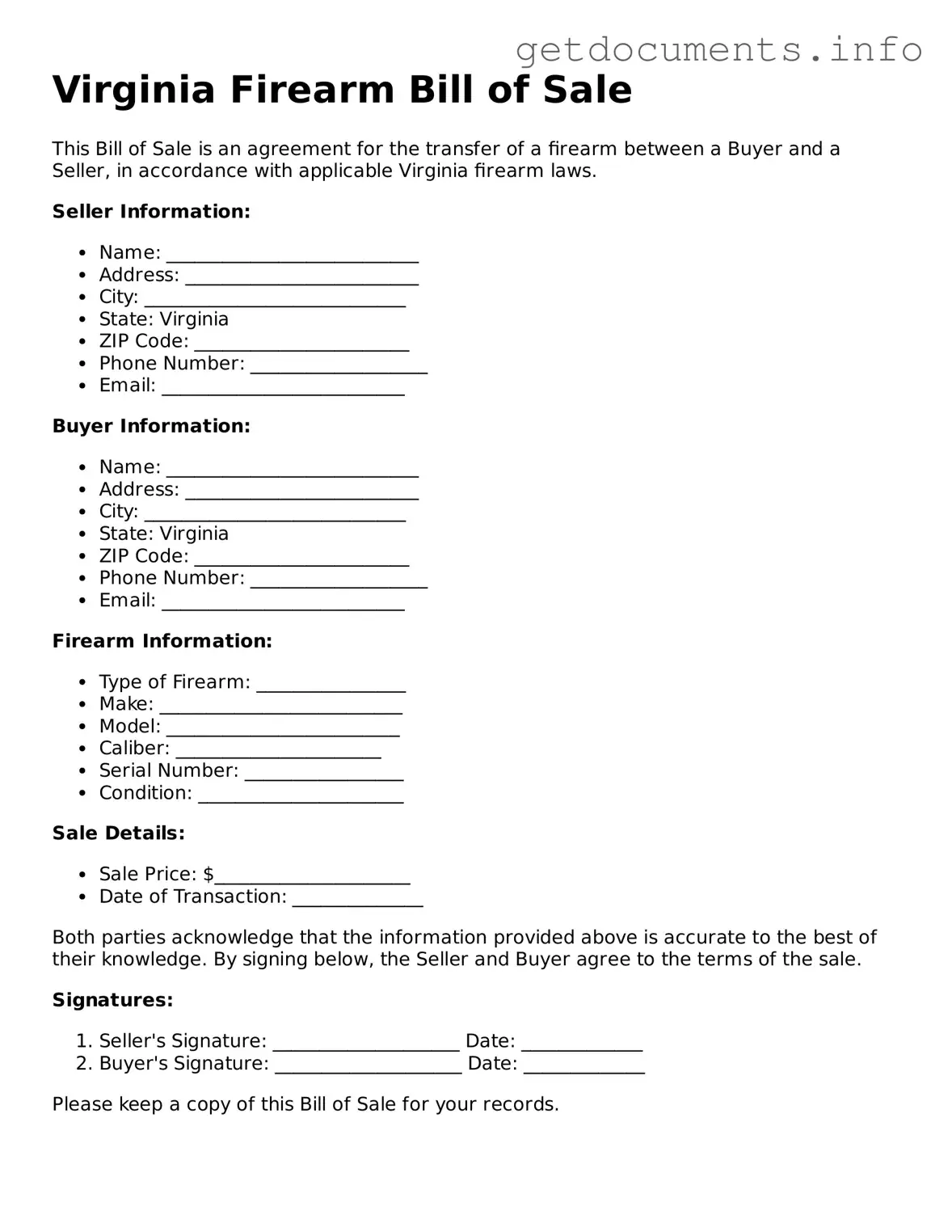Free Firearm Bill of Sale Template for Virginia
The Virginia Firearm Bill of Sale form is a legal document that records the sale and transfer of a firearm between a buyer and a seller in Virginia. This form serves to protect both parties by providing proof of the transaction and ensuring compliance with state laws. Understanding its importance can help facilitate a smooth and lawful exchange.
To ensure a proper and secure transaction, consider filling out the form by clicking the button below.
Access Firearm Bill of Sale Editor

Free Firearm Bill of Sale Template for Virginia
Access Firearm Bill of Sale Editor
Got places to be? Complete the form fast
Fill out Firearm Bill of Sale online and avoid printing or scanning.
Access Firearm Bill of Sale Editor
or
⇩ PDF File
